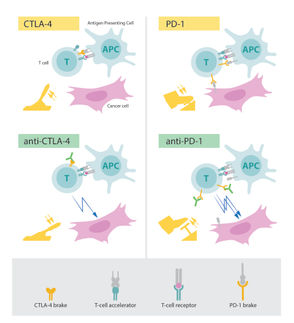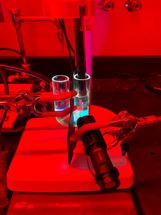Bayer files applications for Vardenafil in United States and Mexico
Bayer Corporation today announced it has submitted vardenafil – its treatment in development for men with erectile dysfunction (ED) – for regulatory review in the United States and Mexico. Pending approvals, Bayer anticipates launching vardenafil in the United States and Mexico in the second half of 2002, with EU approval and launch shortly thereafter. Vardenafil is a highly potent and selective phosphodiesterase-5 (PDE-5) inhibitor.
"The vardenafil submissions represent a major step toward achieving our goal of offering more options to both physicians for treating ED, as well as to men suffering from ED," said David R. Ebsworth, Ph.D., President and General Manager, Business Group Pharma, Bayer AG. "This milestone represents an aggressive 47-month development period for Bayer from the beginning of pre-clincial testing to submission. We are extremely encouraged by the strong efficacy results and safety profile that have emerged from a very thorough clinical trial programme. "
It is estimated that ED — the inability to sustain an erection sufficient for sexual intercourse — affects more than half of all men aged over 40 years. While it is estimated 140 million men worldwide are affected by ED, only one in 20 seeks medical treatment, thus demonstrating the clear need for additional therapies in this area. There are a number of causes for ED, including common medical conditions, such as diabetes and cardiovascular disease, psychological factors, and medications, such as anti-depressants.
Bayer AG's research and development in the field of erectile function leverages the strong foundation of the company's expertise in urology. Bayer AG already has established itself as a credible force in this arena with Cipro®* (ciprofloxacin HCl) to treat chronic bacterial prostatitis. Bayer also is marketing Viadur™ in the United States, the first and only, once-yearly continuous testosterone suppression therapy to treat symptoms of advanced prostate cancer.
Other news from the department research and development

Get the chemical industry in your inbox
By submitting this form you agree that LUMITOS AG will send you the newsletter(s) selected above by email. Your data will not be passed on to third parties. Your data will be stored and processed in accordance with our data protection regulations. LUMITOS may contact you by email for the purpose of advertising or market and opinion surveys. You can revoke your consent at any time without giving reasons to LUMITOS AG, Ernst-Augustin-Str. 2, 12489 Berlin, Germany or by e-mail at revoke@lumitos.com with effect for the future. In addition, each email contains a link to unsubscribe from the corresponding newsletter.





























































